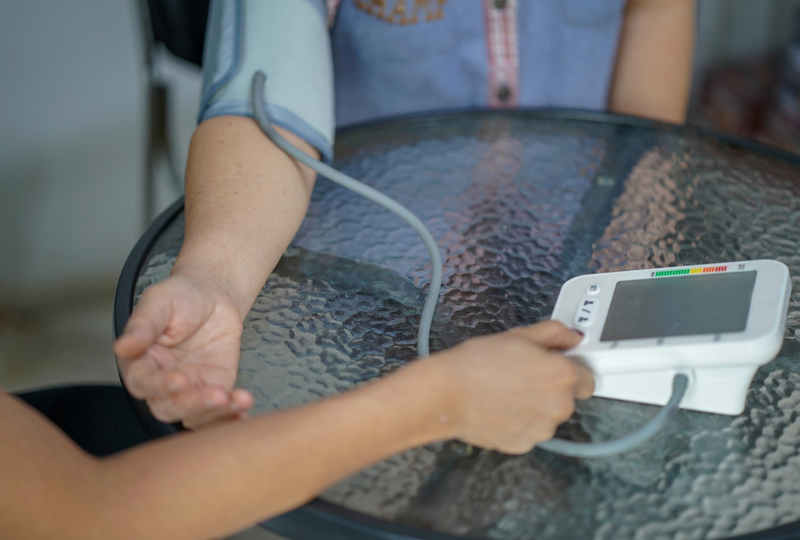One in five young adults in India has high blood pressure: CSI 2018
ESC Press Office Nov 26, 2018
One in five young adults in India has high blood pressure, according to research presented at the 70th Annual Conference of the Cardiological Society of India (CSI). That equates to around 80 million people, which is more than the entire UK population.

CSI 2018 is being held 22 to 25 November in Mumbai. Joint scientific sessions were held by the European Society of Cardiology (ESC) and CSI as part of the ESC Global Activities programme. High blood pressure (hypertension) is the leading global cause of premature death. It is a major risk factor for heart attack, stroke, heart failure, atrial fibrillation, chronic kidney disease, and cognitive decline.
Study author Dr Kartik Gupta, a physician at the All India Institute of Medical Sciences (AIIMS), New Delhi, said: “High blood pressure hits Indians at a younger age than western populations, and first heart attacks and strokes occur a decade earlier on average.
India’s screening programme typically starts at 30, which is too late. We need to screen and promote healthy lifestyles early to avoid the crisis India is heading for. Over 50% of Indians are under 40 – this is the most economically productive group and India is banking on them for its development.”
The Great India BP Survey was conducted in 24 Indian states, from 9 am to 5 pm on a single day. Blood pressure was measured in public places such as metro stations, bus stops, and marketplaces. Readings were repeated in those with high blood pressure (more than 140/90 mmHg).
Participants were asked about risk factors for hypertension including smoking and chewing tobacco, diabetes, and high cholesterol, as well as previous heart attack or stroke, and whether they were taking blood pressure drugs. Blood pressure was recorded in around 180,000 Indian adults. Of those, 89,210 were 18–39 years old and are the focus of the current study. The average age was 28 years and two-thirds were men. The prevalence of hypertension was 19%. Just 15% of people with hypertension were on treatment and of those, 49% had uncontrolled blood pressure.
The level of self-reported risk factors was: smoking 7.5%, tobacco chewing 6.6%, diabetes mellitus 2.1%, and high cholesterol 2.2%. Analyses revealed that the risk factor most strongly related to hypertension was diabetes, which was associated with a doubled risk of developing high blood pressure.
Dr. Gupta noted that risk factors were likely underreported. He said: “National data shows that 5–10% of Indians have diabetes, 25–30% chew or smoke tobacco, and 20–30% have high cholesterol. Indians hardly exercise at all, and the diet is traditionally high in salt. Consumption of vegetables and fruits is low and western junk food and soft drinks have become increasingly popular.”
“The main message from our study is that we should start screening for hypertension at 18–19 years of age,” said Dr Gupta. “It could become part of the physical examination for those who attend college. In addition, school children need education about being physically active, keeping body weight down, eating healthily, and avoiding tobacco. This would prevent many people from developing high blood pressure, diabetes, and high cholesterol.”
For study participants found to have hypertension, Dr. Gupta said they should visit their GP to confirm that their blood pressure is consistently higher than 140/90 mmHg before starting medication. He added: “When adults come to see a doctor for any reason we should routinely measure their blood pressure.”
Professor Kewal C. Goswami, CSI President-Elect and Chairman of the CSI 2018 Scientific Committee, said: “Until now we did not have a clear picture of the extent of hypertension in young adults in India. We need to do more to prevent and treat high blood pressure. This includes tackling our high salt consumption and low levels of exercise.”
Professor Marco Roffi, course director of the ESC programme at CSI 2018, said: “ESC guidelines recommend a healthy lifestyle for all patients with high blood pressure, as it can delay the need for drugs or complement their effects. In patients who start medication, ESC guidelines recommend taking two drugs as a single pill to make adherence easier.”
High blood pressure does not usually cause symptoms. Very high blood pressure can cause headaches, blurred vision, nosebleeds, difficulty breathing, chest pain, irregular heartbeat, blood in the urine, confusion, or pounding in the chest, neck, or ears. See your doctor if you have any of these symptoms.
This article is a press release of a study presented at the 70th Annual Conference of the Cardiology Society of India, 2018. Read the original here.
-
Exclusive Write-ups & Webinars by KOLs
-
Daily Quiz by specialty
-
Paid Market Research Surveys
-
Case discussions, News & Journals' summaries